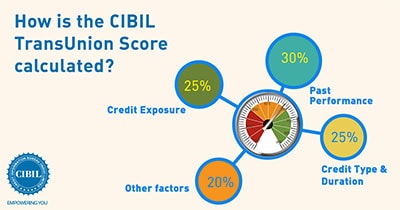For a beginner, income tax return filing may seem like a big deal. If this is your first time at it, here's are some pointers to help you sail.
1. Should I file a Return?
The IT department requires that one must file an income tax return if their total income is more than Rs 2,50,000. This total income is essentially the sum of income earned from all sources - salary, interest income from the bank, any rental income etc. Also the Rs 2,50,000 is your gross income before reducing any Deductions. Non-filing of returns may attract some penalties from the IT department.
2. All my tax is already deducted?
While, TDS may already have been deducted from your salary and other incomes, disclosing all your incomes and filing your return timely is your responsibility. So we go back to the thumb rule of 'file a return where your income exceeds Rs 2,50,000', whether or not TDS is deducted, all taxes may have been paid - the IT department still wants you to submit your IT Return.
3. My employer gave me a Form 16?
Your Form 16 is like a certificate your employer gave you for all the taxes they deducted before paying you salary. In fact, anyone who deducts tax before paying you is required to give you a certificate of it. Your Form 16 has other vital information which will help you file your return easily - so do remember to get hold of this document. If you changed jobs during the year, you'll have as many Form 16s.
4. I don't know what is my total Income?
Your income is the sum total of your income from the following heads - income from salaries, income from house property, income from capital gains, Income from business & profession and Income from other sources.
You can choose to disclose all your incomes to your employer and they will deduct tax on them. This saves you the hassle of paying taxes yourself. Now while filing your return, make sure you have considered all sources of income including interest on your savings bank account, interest from FDs or any shares you sold during the year. Your tax return should mention all your incomes.
5. What are deductions from income?
Certain deductions are available under section 80C to 80U. These deductions are allowed from your gross income and may help you move down a slab as well as reduce your tax outgo, so make the most of them. Your contributions to EPF, deposits to PPF, life insurance premium payments are all eligible to be deducted under section 80C. The maximum amount you can claim under section 80C is Rs 1,50,000 for financial year 2014-15. That's a lot of reduction from your gross income. If you have taken health insurance, a deduction is allowed under section 80D, for interest payment on education loans deduction can be claimed under section 80E and a lot of other deductions are available too, if you meet the conditions listed therein.
6. How do I go about filing my return?
You can simply upload your Form 16 on ClearTax and populate your return. You can also go head by head and keep adding details of your incomes. Make sure you have mentioned all the deductions you want to claim. Use your Form 26AS to get a sense of all the TDS that has been deducted against your PAN number and take credit of this TDS against your final tax liability. Or if excess TDS has been deducted, you may be in a refund situation. Form 26AS will also help you identify all the incomes you need to report if they've been subjected to TDS. You'll see your interest income from the bank and the TDS deducted on it, so you can add the income under the head 'income from other sources' and take credit for TDS deducted. Of course, your return must include all incomes, whether or not TDS has been deducted on them. Do remember to enter your personal information like PAN, phone number, email address and bank account number accurately. Usually salary returns are not complex and you'll be done in a matter of few minutes.
Hope this helps you succeed at filing your return the first time.
Disclaimer: All information in this article has been provided by Cleartax.in and Ezeeguide.blogspot.com is not responsible for the accuracy and completeness of the same.
1. Should I file a Return?
The IT department requires that one must file an income tax return if their total income is more than Rs 2,50,000. This total income is essentially the sum of income earned from all sources - salary, interest income from the bank, any rental income etc. Also the Rs 2,50,000 is your gross income before reducing any Deductions. Non-filing of returns may attract some penalties from the IT department.
2. All my tax is already deducted?
While, TDS may already have been deducted from your salary and other incomes, disclosing all your incomes and filing your return timely is your responsibility. So we go back to the thumb rule of 'file a return where your income exceeds Rs 2,50,000', whether or not TDS is deducted, all taxes may have been paid - the IT department still wants you to submit your IT Return.
3. My employer gave me a Form 16?
Your Form 16 is like a certificate your employer gave you for all the taxes they deducted before paying you salary. In fact, anyone who deducts tax before paying you is required to give you a certificate of it. Your Form 16 has other vital information which will help you file your return easily - so do remember to get hold of this document. If you changed jobs during the year, you'll have as many Form 16s.
4. I don't know what is my total Income?
Your income is the sum total of your income from the following heads - income from salaries, income from house property, income from capital gains, Income from business & profession and Income from other sources.
| Income from Salary | Salary, HRA, other allowances basically all the money you receive while rendering your job as a result of your employment agreement. |
| Income from House Property | Income from your house that you have rented. Or if you have taken a loan for a house property that own and live in, the interest payout shall be your loss under this head. This loss can be adjusted against incomes from other heads. |
| Income from Capital Gains | Income from gain or loss when you sell a capital asset. For example, sale of shares, mutual funds etc. |
| Income from Business or Profession | Income/loss that arises as a result of carrying on a business or profession. |
| Income from Other Sources | This is the residual head -includes your income from savings bank accounts, fixed deposits, family pension or gifts received. |
You can choose to disclose all your incomes to your employer and they will deduct tax on them. This saves you the hassle of paying taxes yourself. Now while filing your return, make sure you have considered all sources of income including interest on your savings bank account, interest from FDs or any shares you sold during the year. Your tax return should mention all your incomes.
5. What are deductions from income?
Certain deductions are available under section 80C to 80U. These deductions are allowed from your gross income and may help you move down a slab as well as reduce your tax outgo, so make the most of them. Your contributions to EPF, deposits to PPF, life insurance premium payments are all eligible to be deducted under section 80C. The maximum amount you can claim under section 80C is Rs 1,50,000 for financial year 2014-15. That's a lot of reduction from your gross income. If you have taken health insurance, a deduction is allowed under section 80D, for interest payment on education loans deduction can be claimed under section 80E and a lot of other deductions are available too, if you meet the conditions listed therein.
6. How do I go about filing my return?
You can simply upload your Form 16 on ClearTax and populate your return. You can also go head by head and keep adding details of your incomes. Make sure you have mentioned all the deductions you want to claim. Use your Form 26AS to get a sense of all the TDS that has been deducted against your PAN number and take credit of this TDS against your final tax liability. Or if excess TDS has been deducted, you may be in a refund situation. Form 26AS will also help you identify all the incomes you need to report if they've been subjected to TDS. You'll see your interest income from the bank and the TDS deducted on it, so you can add the income under the head 'income from other sources' and take credit for TDS deducted. Of course, your return must include all incomes, whether or not TDS has been deducted on them. Do remember to enter your personal information like PAN, phone number, email address and bank account number accurately. Usually salary returns are not complex and you'll be done in a matter of few minutes.
Hope this helps you succeed at filing your return the first time.
Disclaimer: All information in this article has been provided by Cleartax.in and Ezeeguide.blogspot.com is not responsible for the accuracy and completeness of the same.


 However getting the right source of funding is slightly more complex. Each source of capital has its own unique advantages and disadvantages.
However getting the right source of funding is slightly more complex. Each source of capital has its own unique advantages and disadvantages. While
While  Venture capitalists aim to invest in early stage businesses with high growth potential. Traditionally venture capitalists received equity in the business in exchange for funding it. However these days they typically demand a mixture of equity and debt financing.
Venture capitalists aim to invest in early stage businesses with high growth potential. Traditionally venture capitalists received equity in the business in exchange for funding it. However these days they typically demand a mixture of equity and debt financing. You might not have the money to get your business started but maybe you know someone who does. Of the Inc top 500 businesses, 28% received seed funding from a co-founder.
You might not have the money to get your business started but maybe you know someone who does. Of the Inc top 500 businesses, 28% received seed funding from a co-founder. Guy Kawasaki is a Silicon Valley venture capitalist, bestselling author, and Apple Fellow. He was one of the Apple employees originally responsible for marketing the Macintosh in 1984.
Guy Kawasaki is a Silicon Valley venture capitalist, bestselling author, and Apple Fellow. He was one of the Apple employees originally responsible for marketing the Macintosh in 1984.